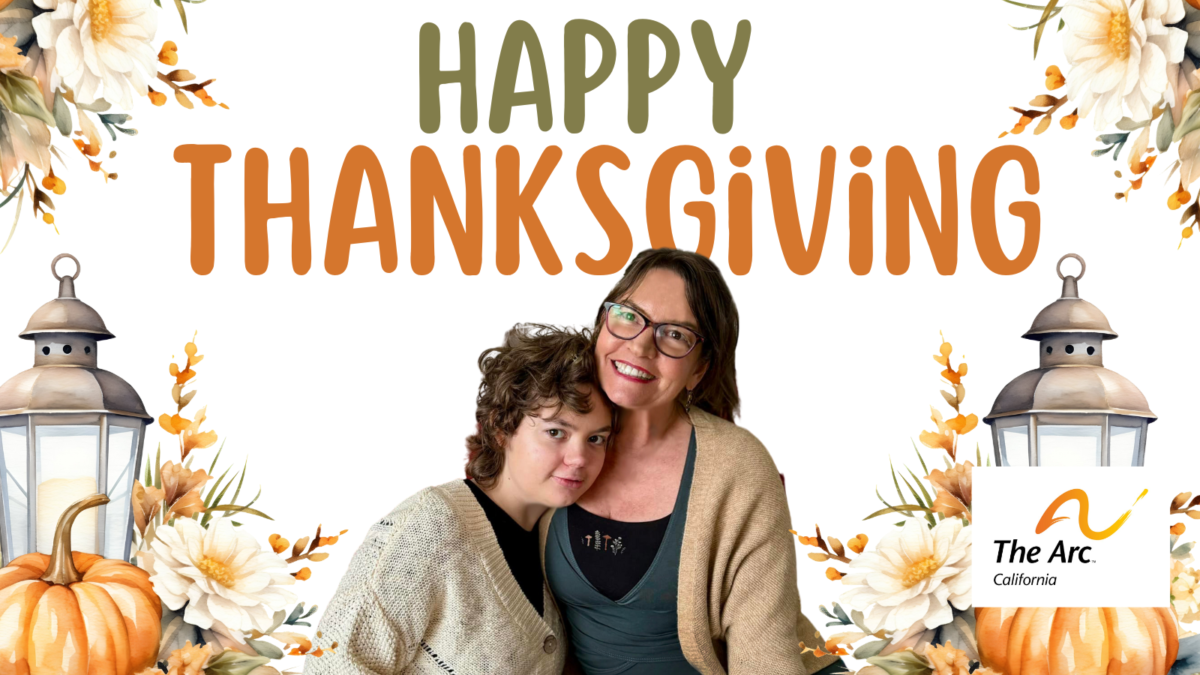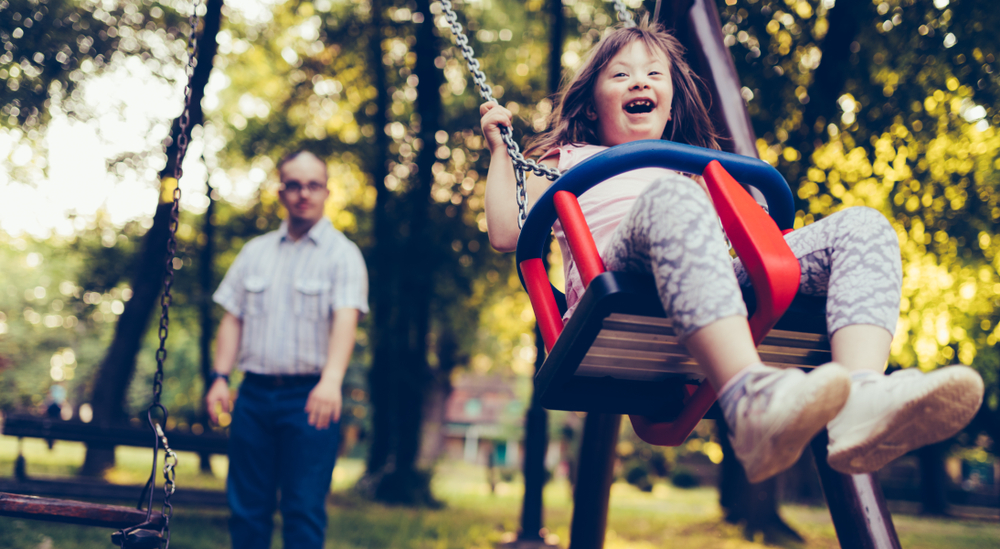By Felisa Strickland, Board Member, The Arc of California
“What are you thankful for this year?” Have you ever been asked or thought about it and struggled with your answer? I mean, there is ALWAYS something to be thankful for, right? So, “what AM I thankful for this year?”
Many years ago, my daughter Lily was diagnosed with cerebral palsy and autism. I was digesting and adjusting to all that goes with parenting a child with disabilities, accessing services and supports and trying to find a place where we fit in. Our schools and some of our friends and family just didn’t quite get all that went into our new life with disabilities. When Lily’s father passed away, his loss left a huge hole filled with grief. Some days, it was hard to move.
I can remember times where I couldn’t think of how to answer the question, “What am I thankful for this year.” Of course there are the obvious things like waking up, having food to eat, a roof over our head, etc. … but sometimes the weight of what you’re carrying in your life can cloud your perspective and make it hard for you to see what’s right in front of you. I suppose what we are thankful for will depend on our perspective in the moment that we are asked that question.
This year I have had the unique opportunity to be a part of Caring Futures, a wonderful program created by The Arc of California. It is shining a light into the lives of parents and caregivers, providing them with resources, future planning and self-care classes and a supportive community. Teaching these classes has allowed me to meet and share experiences with so many amazing people. We all have different experiences and circumstances, but one thing in common — the need for each other. We need to connect with others going through something similar. We need to learn from each other and share our journeys in the comfort of community. It has been a remarkable first year of Caring Futures. I am grateful to be a part of such an amazing community!
All these years later and I am still digesting, transitioning and navigating the world of disability, advocating and fighting for services and supports, and most definitely still grieving the loss of Lily’s father. However, I now do it with a different perspective. I am not isolated or feeling alone, but instead I feel lifted and empowered to lift others through the comfort and strength of community. YOU are part of this community, and I am thankful you are here. Together we are stronger, and we are not alone. For that, I AM THANKFUL!
I hope this holiday season gives you many moments to be thankful for, and the opportunities to share them with those you love and care for.
Wishing you and your family a very Happy Thanksgiving,
Felisa Strickland
Parent-Educator, Board Member and Proud Parent Advocate



